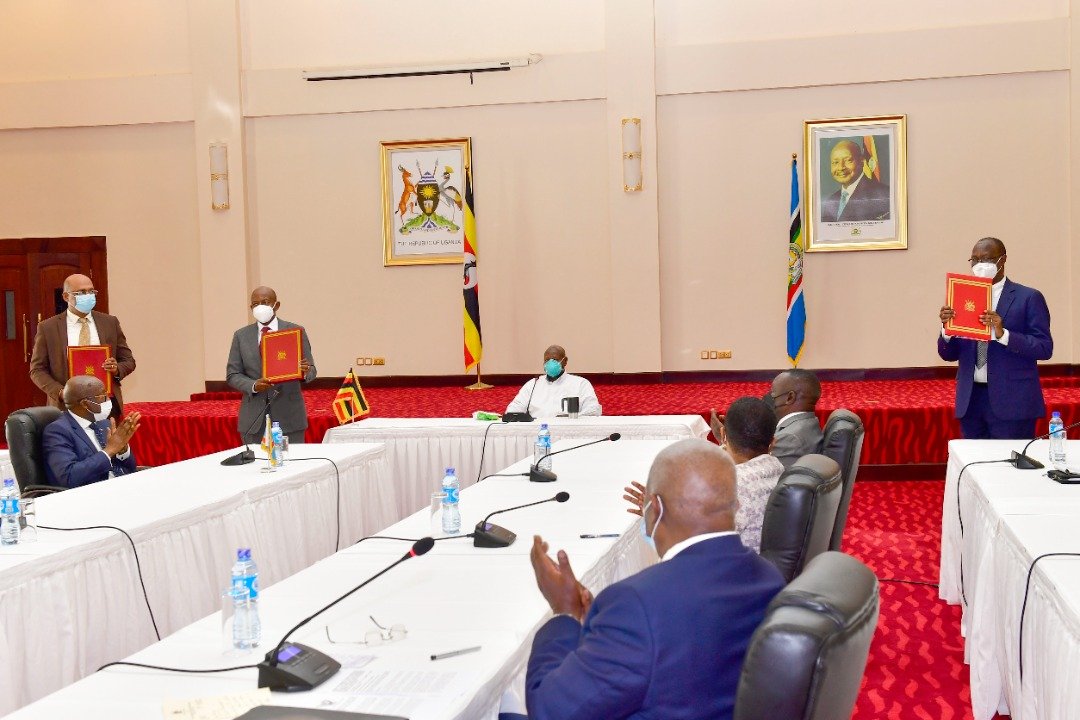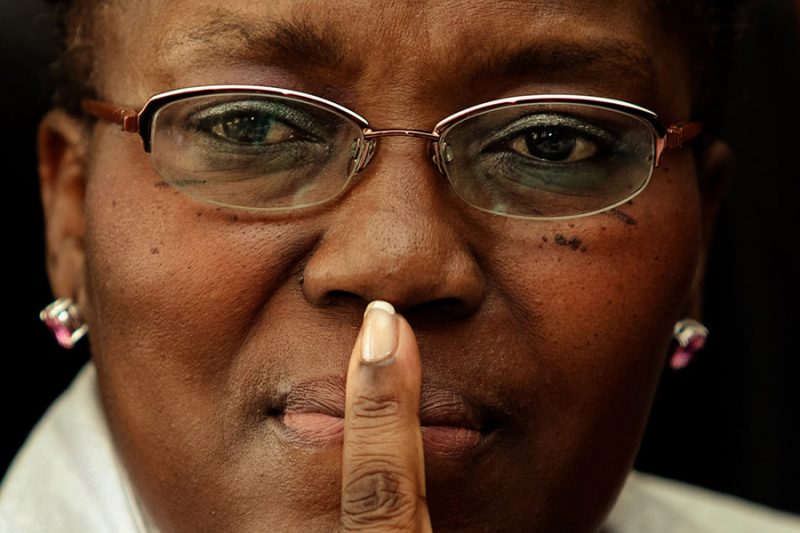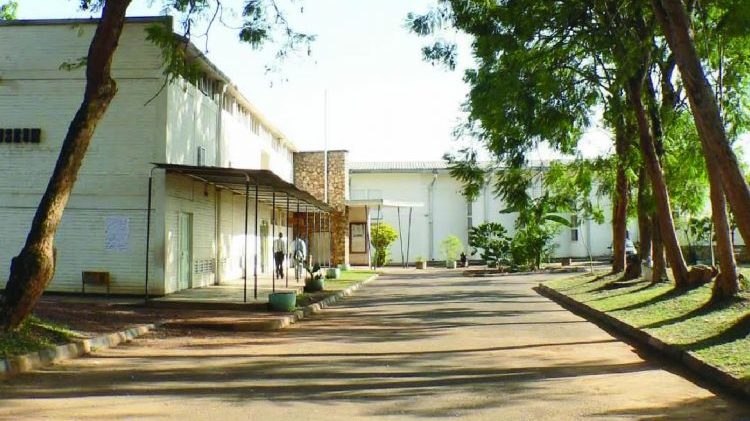Uganda and the Democratic Republic of Congo have signed the intergovernmental agreement on infrastructure.
The event took place at statehouse Entebbe.
President Yoweri Museveni signed on behalf of Ugandan while, Christophe Lutundula represented the DRC.
Uganda’s cabinet last year approved plans to build three roads inside the DRC, continuing the country’s recent strategy of growing its influence in the Great Lakes region riding on infrastructure diplomacy.
Jointly funded by the two countries, the roads will run from some of Uganda’s border towns into DRC: one will run from Kasindi to Beni (80km) and another will integrate the Beni-Butebo axis (54km). The third will stretch for 89 kilometres from the border town of Bunagana, through Rutshuru to the strategic city of Goma, the capital of the North Kivu Province in DRC.
The Cabinet approval followed the Uganda-DRC Business Forum in November 2019 in Kampala, which included a bilateral meeting between Presidents Felix Tshisekedi and Yoweri Museveni at State House, Entebbe.

Economically, the road will double trade volumes between the two countries in the short term, according to Gen Wamala, the Transport minister. In 2018, Uganda exported goods to DR Congo worth $532 million, including an estimated $312 million in informal exports.
Uganda’s top exports to DRC include cement, sugar, rice, beer, wheat flour, biscuits and beauty and make-up products while importing include iron, pearls, mineral fuels, wood, charcoal, spices, vegetable fats and oils, rubber among others from its western neighbour.
Trade across the border has however been hampered by a poor road network inside DRC which Ugandan traders say increases the cost of doing business. Insecurity in the region has also been a hindrance to smooth cross border trade between the two countries. The road is thus expected to speed up trade and increase transparency in the cross-border flows of goods.
Politically, Uganda is banking on infrastructure to strengthen relations which thawed somewhat under former president Joseph Kabila but remained frosty due to instability in eastern DRC and a $10 billion bill imposed on Kampala in 2005 by the International Court of Justice.

















